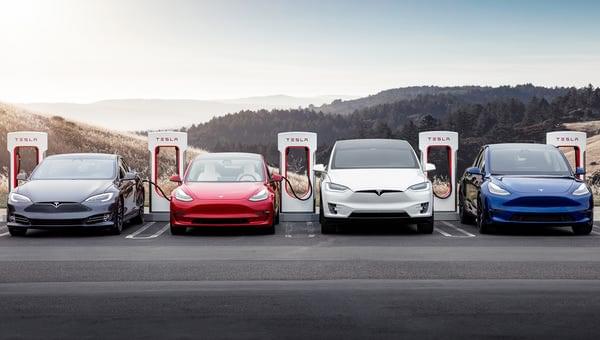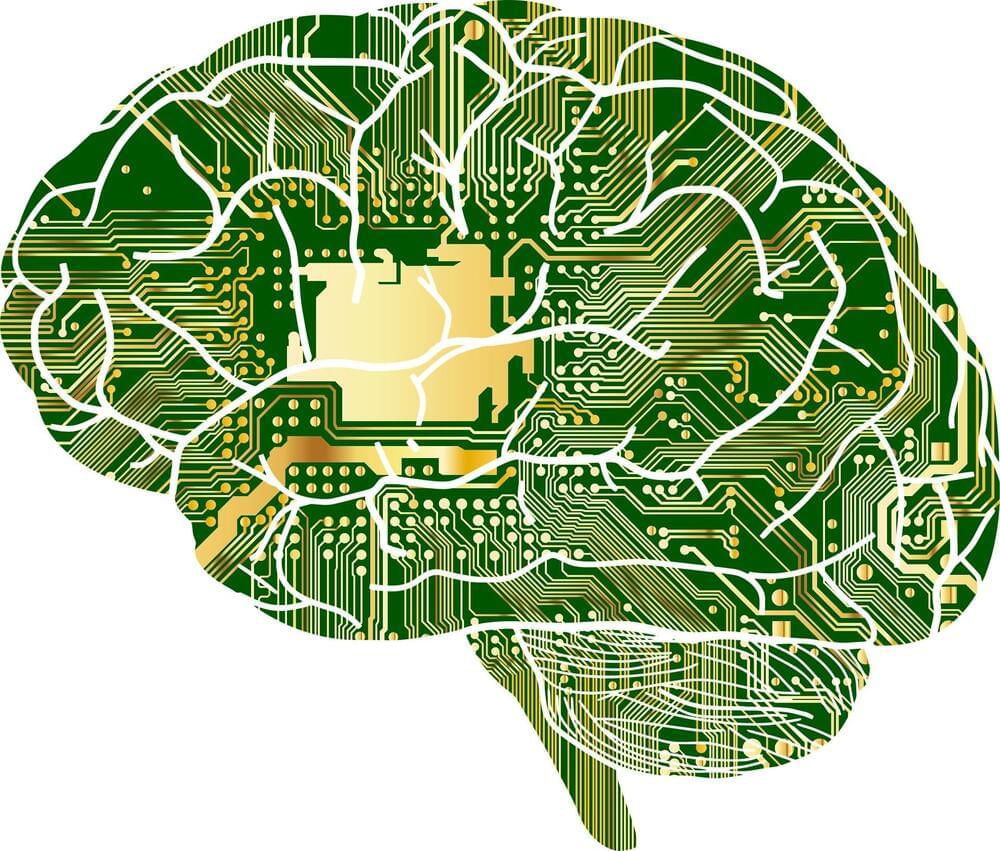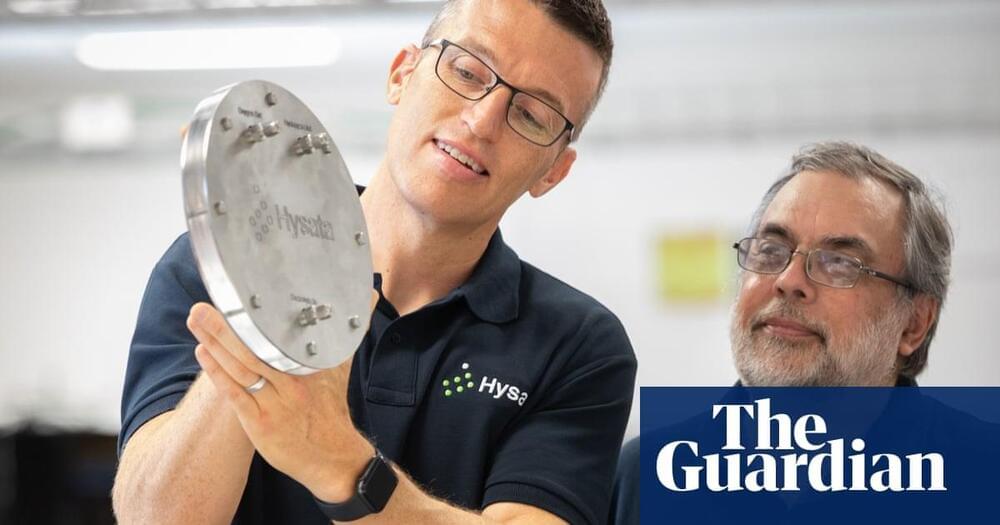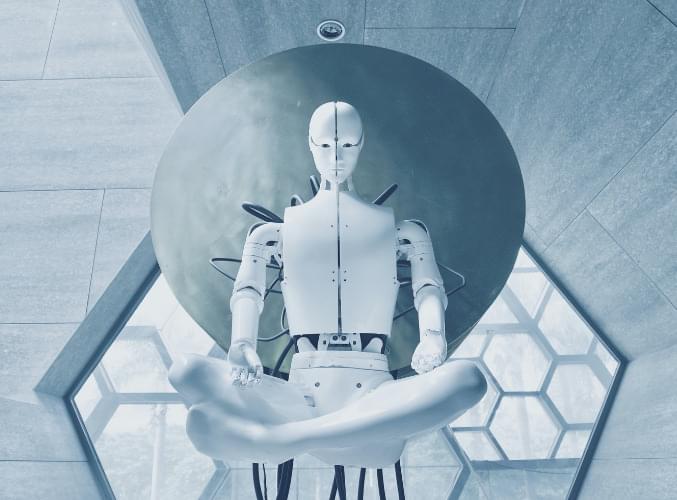Page 5060
Mar 17, 2022
Russia May Have Used an Artificial Intelligence Killer Drone in Ukraine According to the Bulletin of the Atomic Scientists
Posted by Len Rosen in categories: drones, robotics/AI
A downed drone employing AI raises the question of what the international community needs to do to ban such weapons.
Mar 17, 2022
Tesla Raises Prices Again: It Won’t Be the Last Time
Posted by Kelvin Dafiaghor in categories: sustainability, transportation
For the second time in less than a week, Tesla has raised the price of its vehicles. Only this time, we see a significant hike across the entire lineup. The Model 3, its most affordable EV, cost around $42k at the end of 2021 but now starts at $47,000.
Mar 17, 2022
Exocortex: Thought this might be of some interest
Posted by Dan Breeden in categories: biological, computing, neuroscience, transhumanism
An is an external information processing system that augments the brain’s biological high-level cognitive processes.
An individual’s would be comprised of external memory modules 0, processors 0, IO devices and software systems that would interact with, and augment, a person’s biological brain. Typically this interaction is described as being conducted through a direct brain-computer interface 0, making these extensions functionally part of the individual’s mind.
Individuals with significant exocortices can be classified as transhuman beings.
Mar 17, 2022
Mathematical paradoxes demonstrate the limits of AI
Posted by Dan Breeden in categories: information science, mathematics, robotics/AI
Humans are usually pretty good at recognizing when they get things wrong, but artificial intelligence systems are not. According to a new study, AI generally suffers from inherent limitations due to a century-old mathematical paradox.
Like some people, AI systems often have a degree of confidence that far exceeds their actual abilities. And like an overconfident person, many AI systems don’t know when they’re making mistakes. Sometimes it’s even more difficult for an AI system to realize when it’s making a mistake than to produce a correct result.
Researchers from the University of Cambridge and the University of Oslo say that instability is the Achilles’ heel of modern AI and that a mathematical paradox shows AI’s limitations. Neural networks, the state of the art tool in AI, roughly mimic the links between neurons in the brain. The researchers show that there are problems where stable and accurate neural networks exist, yet no algorithm can produce such a network. Only in specific cases can algorithms compute stable and accurate neural networks.
Mar 17, 2022
An indium oxide-based transistor created using atomic layer deposition
Posted by Dan Breeden in categories: computing, mobile phones, solar power, sustainability
Over the past decades, engineers have created increasingly advanced and highly performing integrated circuits (ICs). The rising performance of these circuits in turn increased the speed and efficiency of the technology we use every day, including computers, smartphones and other smart devices.
To continue to improve the performance of integrated circuits in the future, engineers will need to create thinner transistors with shorter channels. Down-scaling existing silicon-based devices or creating smaller devices using alternative semiconducting materials that are compatible with existing fabrication processes, however, has proved to be challenging.
Researchers at Purdue University have recently developed new transistors based on indium oxide, a semiconductor that is often used to create touch screens, flatscreen TVs and solar panels. These transistors, introduced in a paper published in Nature Electronics, were fabricated using atomic layer deposition, a process that is often employed by transistor and electronics manufacturers.
Mar 17, 2022
Scientists tap AI betting agents to help solve research reproducibility concerns
Posted by Dan Breeden in category: robotics/AI
Scientists are increasingly concerned that the lack of reproducibility in research may lead to, among other things, inaccuracies that slow scientific output and diminished public trust in science. Now, a team of researchers reports that creating a prediction market, where artificially intelligent—AI—agents make predictions—or bet—on hypothetical replication studies, could lead to an explainable, scalable approach to estimate confidence in published scholarly work.
Replication of experiments and studies, a critical step in the scientific process, helps provide confidence in the results and indicates whether they can generalize across contexts, according to Sarah Rajtmajer, assistant professor in information sciences and technology, Penn State. As experiments have become more complex, costly and time consuming, scientists increasingly lack the resources for robust replication efforts—what is often referred to now by them as the “replication crisis.”
“As scientists, we want to do work, and we want to know that our work is good,” said Rajtmajer. “Our approach to help address the replication crisis is to use AI to help predict whether a finding would replicate if repeated and why.”
Mar 17, 2022
An ultra-cheap electric car conversion kit is FINALLY here!
Posted by Gerard Bain in categories: energy, government, sustainability, transportation
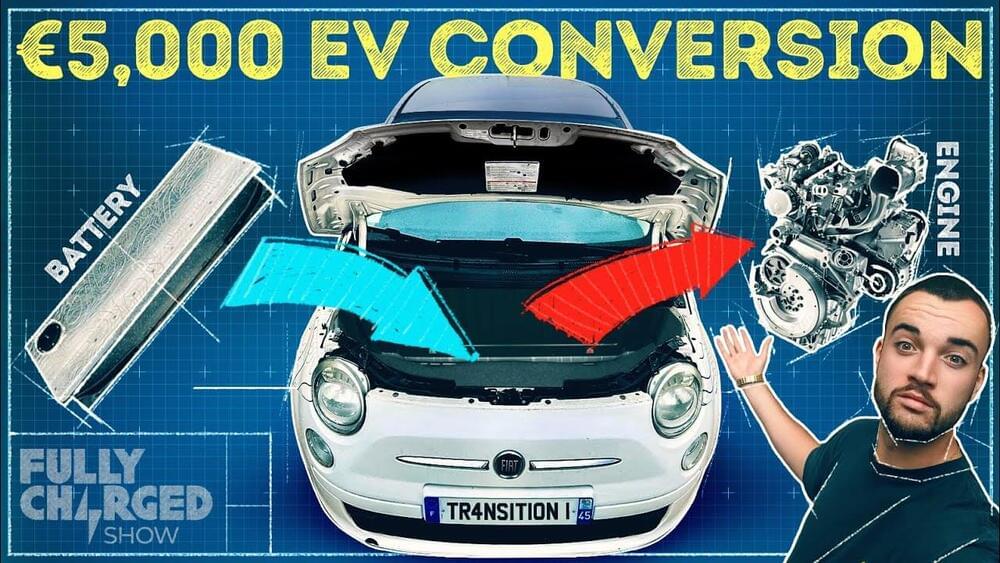
We’ve showcased plenty of EV conversions on the channel before, but up until now they’ve mostly been high-end, beautifully refurbished classics. In this episode, Jack heads to France to investigate the entry-level of EV conversion. For €5,000 after government subsidies, a company by the name of Transition One claims it can turn your old banger into a no fuss, no-emissions electric car. Is this the answer to overpriced new cars? Could this be the key to accelerating EV uptake? Check out the episode to find out.
00:00 Welcome to a crusty Fiat!
1:54 Welcome to Transition One.
3:35 One very charismatic founder.
5:30 How does it work?
7:37 The gearbox lives!
8:50 How much??
12:12 Range and specs.
13:39 Who fits it?
14:43 How many orders?
15:35 When can I buy one?
17:12 Final thoughts.
Continue reading “An ultra-cheap electric car conversion kit is FINALLY here!” »
Mar 17, 2022
Australian researchers claim ‘giant leap’ in technology to produce affordable renewable hydrogen
Posted by Omuterema Akhahenda in categories: energy, government, sustainability
The achievement, published in the peer-reviewed Nature Communication journal today, could see the Morrison government’s so-called hydrogen stretch goal of $2 a kilogram to make the fuel competitive reached as soon as 2025, the Hysata chief executive, Paul Barrett, said.
“We’ve gone from 75% [efficiency] to 95% – it’s really a giant leap for the electrolysis industry,” Barrett said.
Renewable energy from sources such as wind and solar is making big inroads into the power sector, supplying more than a third of eastern Australia’s electricity in the final three months of 2021. However, decarbonising industry and some transport, such as trucking, is likely to be tougher unless fuels such as hydrogen become much cheaper.
Mar 17, 2022
Science of Aliens, Part 11
Posted by Dirk Schulze-Makuch in categories: biotech/medical, science
Could Aliens Get Cancer? What is it´s root cause and would cancer evolve in an Alien Biosphere?


